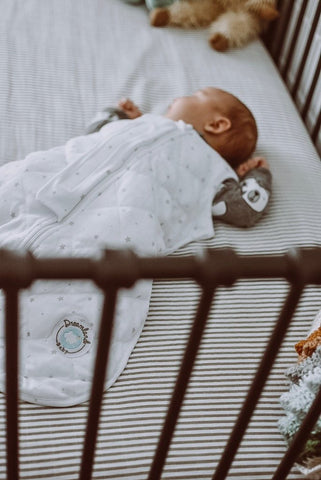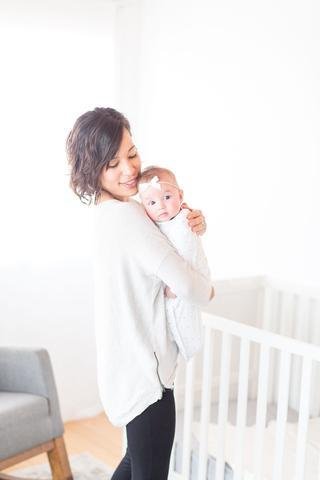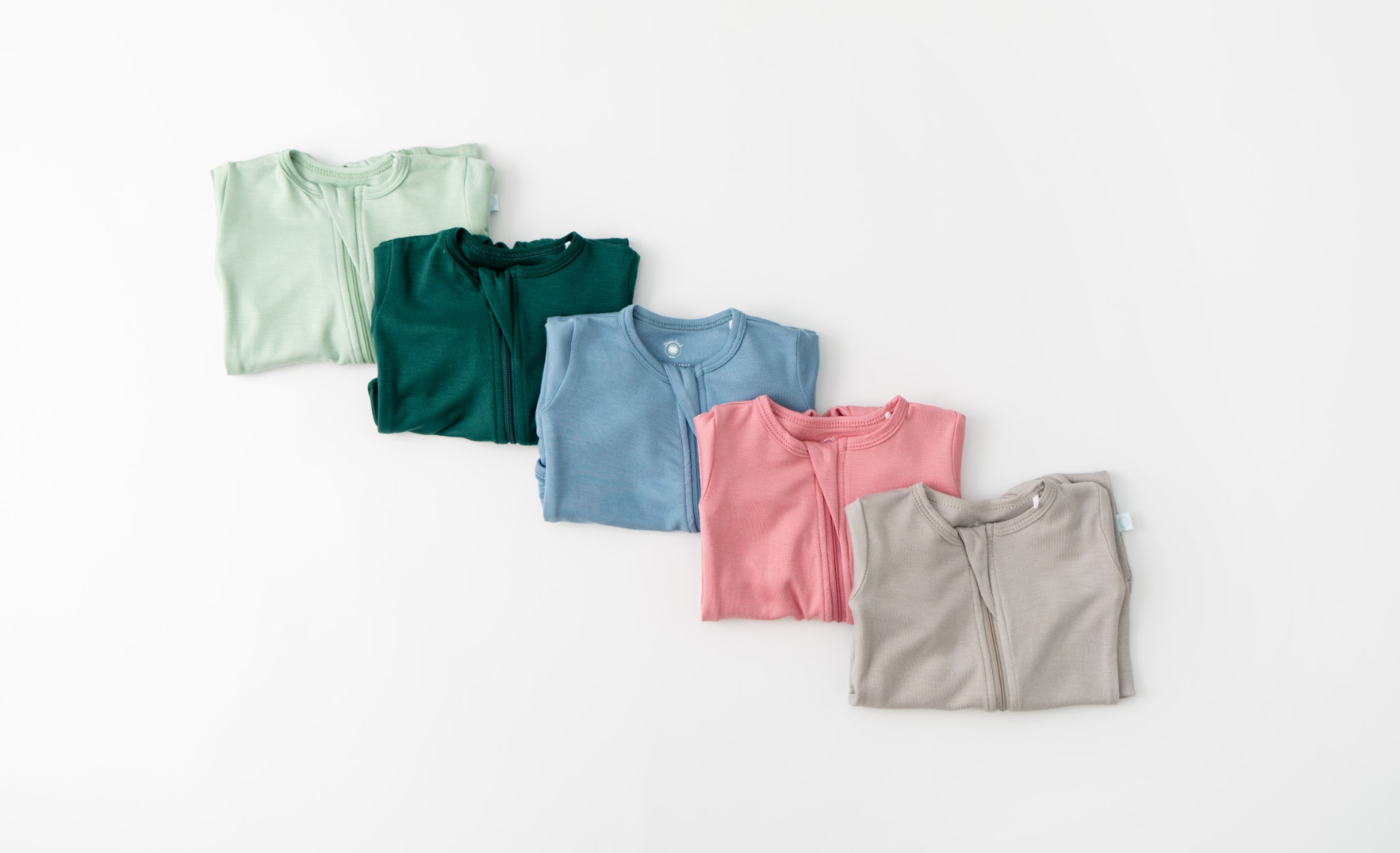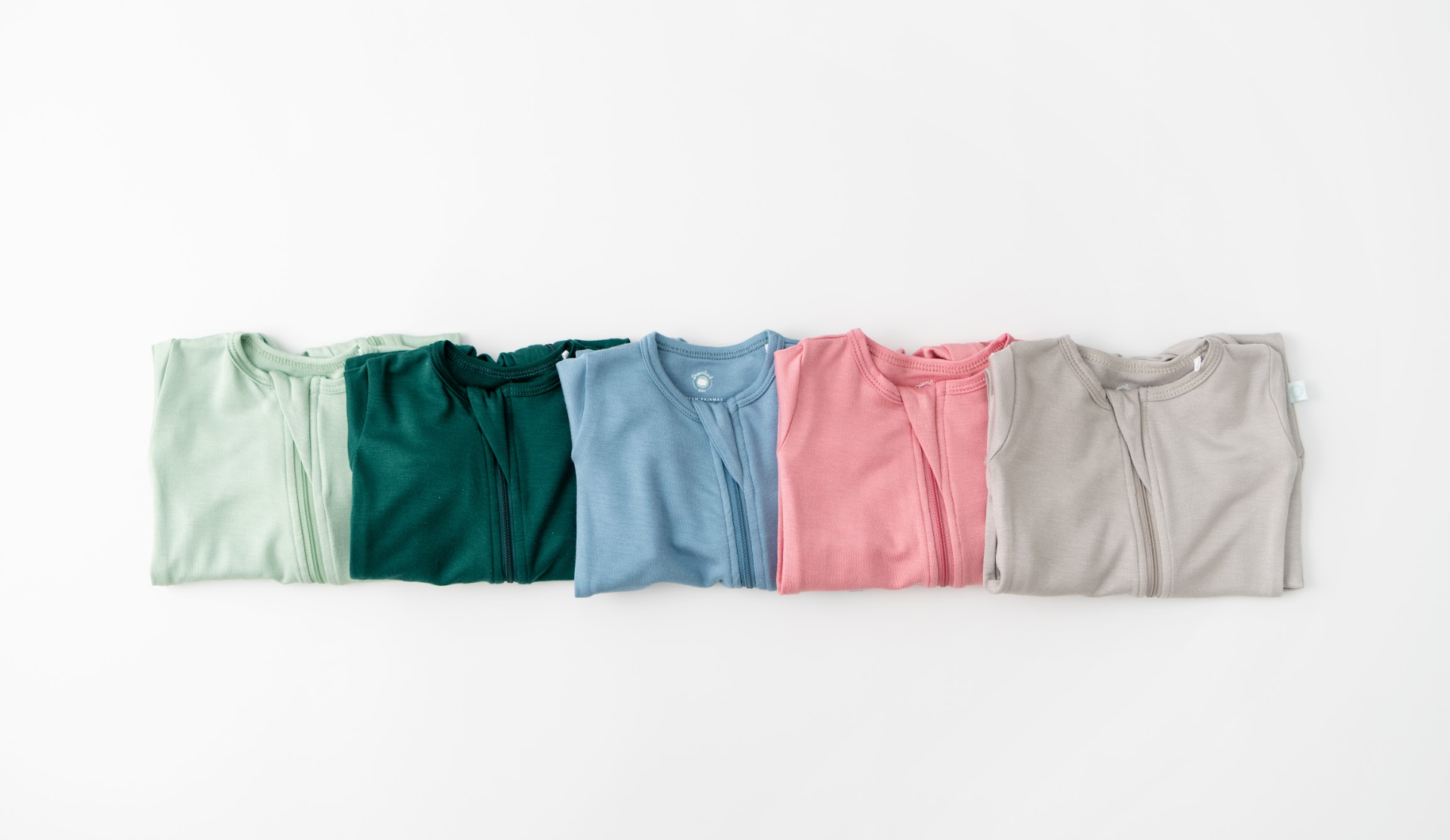What music helps put babies to sleep?
Do you use songs to get your baby to sleep? Singing soothing lullabies to your little one is innate. Prior to your parenting days, you may not have heard those comforting songs in decades, but the words and tune are rooted in your memory. When it's your turn to bring a new life into this world, you rock your little one in your arms and quietly sing them a soothing lullaby as your heart practically explodes. No one had to tell you that the soothing musical sound of your voice is one of the best ways to calm and comfort your baby.
This led me to wonder what kind of songs I should sing to get baby to sleep. Research has shown singing has a positive effect on a baby's sleep and other types of music or white noise can help your baby sleep, too.
What is the best music for baby sleep? Not all music is created equal when it comes to using music to help your baby sleep. But careful consideration of the type of music you sing to or play for your baby can soothe him as he transitions to sleep.

Ways to Use Music to Get Your Baby to Sleep
When it comes to singing your baby a soothing lullaby, you don't give it any prior thought. You may have even sung to your baby when she was in the womb as it is something that comes so naturally to most moms. With a newborn, keeping her soothed and calm through loving care is of utmost importance. That's why we swaddle, rock, and hold our babies close against us. The same is true for singing a soothing lullaby to get your baby to sleep.
Including music in a baby's sleep routine is common practice for most moms. There are 2 ways you can use different types of music to help your baby sleep.
1. Using music during the wake to sleep transition.
In this scenario, soothing lullabies are being sung or music is being played when you're trying to wind down your baby to prepare for sleep. Even when babies are showing signs of sleepiness, having a transition period between play and sleep time is necessary. This could include closing the blinds, dimming the lights, reading a book together, and playing relaxing background music.
Utilizing these methods is a great way to let your baby know, "It's time to sleep." This ultimately makes them more sleepy before performing the last steps of your baby's bedtime routine. Parents who use music in this way often turn the music off before leaving the room, preferring a silent sleep environment for their child.
2. Utilizing music as a way to help your baby fall asleep.
The other option for using music to help your baby sleep is to have it on while your baby falls asleep. Families who have outside noise (such as traffic or older children playing) may find music or white noise helpful to drown it out. Others may notice that it soothes their child as they become an independent sleeper. There are even white noise machines made specifically with babies in mind for this purpose.
Some express concern that playing music while your baby falls asleep will become a crutch. The argument is that music can become a sleep prop that the baby will always need to fall asleep. So, if down the road, your baby starts daycare or sleeps at grandma's, it's possible this music-sleep association will cause them to have a hard time falling asleep without it. But, if you read our article, "5 Myths and a Truth About Baby Sleep" you'll find out that not all sleep props are bad.
The Happiest Baby argues the opposite. They state that white noise "makes good sleep even better."
Research suggests that given the right choice of music, the good far outweighs the bad.
The Top 3 Music Choices to Help Your Baby Fall Asleep
It won't come as a surprise that there are certain types of music you won't want to play for your baby. That can also include ensuring the music is at an appropriate volume.
The following 3 types of music are excellent choices for baby sleep. Played or sung between 45 - 65 decibels (quieter than the sound of a vacuum cleaner) will ensure safety for your baby's ears and the perfect calming effect for the deep sleep they need.

Live-Sung Lullabies
This is the simplest and arguably the most effective choice for calming your baby. Science Daily reports that cognitive neuroscientists found "lullabies soothe both moms and babies simultaneously."
The presence of a mother or father offering their soothing touch and voice are two of the best things you can do for your baby to help their drowsiness fade to sleep. It doesn't really matter which one you sing, or even if you make it up. Got the opposite of mad chops? Your baby doesn't care! Pitch and volume will most likely come intuitively for you.
White Noise
White noise isn't necessarily what you'd call music. Instead, it's a combination of various frequencies that humans can hear. These may come in the form of ocean waves, heartbeats, or nature sounds including animal noises. Continuous noise such as rain is thought to be the most effective. Luckily, many white noise machines offer different choices so you can find what your baby likes best.
If you search for white noise machines for your baby, you will find an abundance of choices. It can be overwhelming and hard to choose. Just remember that it doesn't have to be fancy to work wonders for your baby's sleep. These are some considerations as you're making the choice:
- portability
- adjustable volume with the lowest level being 50 dB or under
- automatic shut off
- multiple sound options
Soft Classical Music
Classical music is another great music choice to help your baby fall asleep. The absence of lyrics makes it a distraction-free choice. Remember that the pitch of the music shouldn't be too high or too low. This goes for classical music, too. Percussion instruments don't lend themselves well to baby sleep, so look for classical music that offers gentle tones.
Using the right kind of classical music will calm your baby's heartbeat and improve their overall sleep.

Combining Soothing Lullabies and Weighted Sleep Sacks
We have learned soothing music can get your baby to sleep but how can we take it one step further to ensure the best sleep possible? Adding Dreamland Baby wearable weighted blanket! These weighted sleep sacks are designed specifically for infants, perfectly calibrated at 0.8 pounds, 1.5 and 2 pounds. Dreamland Baby harnesses the power of deep touch stimulation, naturally reducing stress and increasing relaxation through the gentle weight.
FAQ's for Music for Baby Sleep
Is it OK to play lullaby music all night?
While music is a wonderful sleep cue to include in your nighttime routine, some experts suggest that it only be played for 30 minutes while baby falls asleep and not throughout the night. Additionally, while lullaby music can often be soothing, the words can sometimes be distracting, so choose your music carefully. Soft classical music can be the best kind of music to ensure that baby gets the rest he needs.
Is it OK to play white noise all night for a baby?
Some parents love the white noise machine so much that they are tempted to leave it on all night so that baby can sleep uninterrupted. However, most pediatricians and experts agree that a little bit of white noise goes a long way. As with most “sound” sleep cues like music and white noise, it’s best to use when baby is falling asleep and either turn it off a half an hour later, or set the timer so that it shuts off on its own.
How loud can white noise be for babies?
White noise should be no louder than a quiet dishwasher or vacuum on the lowest setting. According to the American Academy of Pediatrics (AAP) a white noise machine should be set no louder than 50 decibels and at least 7 feet away from baby’s sleep space.
Can babies listen to too much music?
Ideally your baby takes a break from music in his waking hours to absorb all of the other sounds the world has to offer. This not only helps his development but also, too much exposure to loud music can hurt his cute little ears over time.
Is music or white noise better for babies?
Sometimes when it comes to baby, things seem counterintuitive. This is true when it comes to sleep as noise can actually be helpful getting baby to fall asleep.. Soft music because of its soothing qualities, and white noise as it blocks out other noises (like traffic, neighbors, other kids in the house, etc.). So when it comes to which sound is better for your little one, it really comes down to personal preference.
Will using music to help a baby sleep make them reliant?
Because music can be so helpful in not just helping baby get to sleep but to also stay asleep, some pediatricians suggest that parents shouldn’t worry whether or not music becomes a crutch. The truth is, even adults have certain sleep routines that become customary, like using a favorite pillow or listening to music, also, so try not to worry about playing music for baby’s sleep when the benefits are plentiful.
Do babies of different ages need different music or noise to sleep?
Remember, a consistent bedtime routine can do wonders for your little one’s quality of sleep no matter their age. So when it comes to getting a quality night’s sleep for your child, experts suggest to continue with what works! If that means music or white noise, stick with it! Sleep is a precious commodity that effects mental, physical, and emotional development, so if white noise and/or soft music has helped your little one sleep since infancy, continue using it to help them get the sleep they need as they grow.


